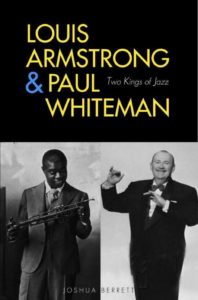Table of Contents:
Louis Armstrong Mack the Knife (with sheet music) 1965
Best Sheet Music download from our Library.
Lyrics

Oh the shark, babe, has such teeth, dear
And he shows them pearly white
Just a jackknife has old Macheath, babe
And he keeps it outta sight
You know when that shark bites with his teeth, babe
Scarlet billows start to spread
Fancy gloves, though, wears ol’ Macheath, babe
So there’s never, never a trace of red
Now, on the side walk, ooh Sunday morning, uh huh
Lies a body just oozing life, eek
And someone’s sneaking ’round the corner
Could that someone be Mack the Knife?
There’s a tugboat down by the river, don’t you know
Where a cement bag’s just a-drooping on down
Oh, that cement is just, it’s there for the weight, dear
Five’ll get ya ten, ol’ Mackie’s back in town
Now did ya hear ’bout Louie Miller? He disappeared, babe
After drawing out all his hard earned cash
And now Macheath spends just like a sailor
Could it be our boy’s done something rash?
Now, Jenny Diver, ho ho, Suky Tawdry
Ooh, Miss Lotte Lenya and ol’ Lucy Brown
Oh, the line forms on the right, babe
Now that Mackie’s back in town
I said, Jenny Diver, woah, Suky Tawdry
Look out, Miss Lotte Lenya and ol’ Lucy Brown
Yes, that line forms on the right, babe
Now that Mackie’s back in town
Look out ol’ Mackie is back
Please, subscribe to our Library. Thank you!
The Story of Mack The Knife
Whilst the song ‘Mack The Knife‘ takes its origins from the medieval murder ballad, we pick up the story in the early 20th Century with composer Kurt Weill whose work ran from stage productions to classical music.
Denounced for his political views, and as a renowned Jewish composer, Weill’s days in his native Germany were numbered; as the Nazi party gained a strong political foothold, he had little option but to leave Germany.
March 1933 found Kurt Weill in Paris where he had the opportunity to work again with the playwright and poet Bertolt Brecht on the satirical ballet, The Seven Deadly Sins. His stay in the French capital was short lived though.
A month later he arrived in New York, where his most well-known work, The Threepenny Opera was given its Broadway debut.
Louis Armstrong and Mack The Knife
The 1955 recording of Mack The Knife by Louis Armstrong ensured that the song rose to the ranks of most famous jazz songs, where it has stayed ever since.
Earlier versions of the song had been recorded, most notably by soprano saxophonist and clarinetist Sidney Bechet, but they had all been instrumental recordings.
Louis Armstrong’s addition of lyrics – recorded for Columbia Records at the behest of producer George Avakian – changed everything.
Avakian had become interested in the music of Kurt Weill after seeing a production of The Three penny Opera, and especially in ‘Mack the Knife’.
Searching for a jazz musician on the label to record the song, he first approached band leader and trombonist Turk Murphy who officially recorded it first, 6 days before Armstrong took the mantle.
On 28th September, under the watchful eye of Weill’s widow Lotte Lenya, he cut both an instrumental and vocal version of the song. The final released version was spliced together from both.
As an interesting side-note, he allegedly recorded a duo with Lenya which was not made available commercially.
Because of the violent nature of the lyrics, several radio stations refused to play Armstrong’s version of Mack The Knife; an attempted ban didn’t prevent the record selling well and reaching #20 on the Billboard’s Top 100 chart and #8 in the UK.
Even more successful was the version of Mack The Knife by Bobby Darin, an America musician who performed in multiple genres including jazz, swing, Rock’n’roll and pop.
In a big band swing version that took the charts by storm, the recording made the Billboard Top 100 chart hitting the No.1 spot and is arguably the most popular version of Mack The Knife of all time.
